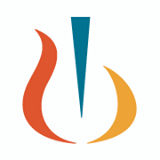NOVARTIS

🇨🇭Switzerland
- Country
- 🇨🇭Switzerland
- Ownership
- Public, Private
- Established
- 1996-01-01
- Employees
- 76K
- Market Cap
- $242.6B
Regenerative Medicine Market is Targeting USD 154.05 Billion by 2033
The global regenerative medicine market was valued at USD 29.42 billion in 2023 and is projected to reach USD 154.05 billion by 2033, driven by rising prevalence of disorders, aging population, and demand for precision medicines. North America leads with a 48.57% share, while Asia-Pacific is expected to grow at a 23.60% CAGR. Key segments include cell therapy, gene therapy, tissue engineering, and small molecules & biologics, with applications in cardiovascular, oncology, dermatology, and musculoskeletal areas. Challenges include high costs and operational inefficiencies, but opportunities exist in novel technologies and advancements in medical devices.
Cybin Expands Clinical Team to Support CYB003 Phase 3 Program
Cybin expands clinical team with Dr. Mirza Rahman as SVP, Patient Safety & Pharmacovigilance, and Dr. Marcelo Gutierrez as VP, Clinical Pharmacology, to support CYB003 Phase 3 program for Major Depressive Disorder.
Roche turns to a startup in search for new breast cancer drugs
Roche agreed to pay $850 million to acquire two experimental breast cancer drugs from Regor Therapeutics. These 'next-generation' CDK inhibitors, RGT-419B and another in early trials, aim to improve upon current CDK treatments by addressing resistance and reducing side effects. Roche plans to start a Phase 2 trial for RGT-419B in 2024, with Regor managing ongoing Phase 1 trials and Roche handling further development and commercialization.
KRAS Inhibitors Market: New Treatments Are Set to Change Cancer Care
The KRAS Inhibitors market is poised for significant growth driven by increasing cancer incidence, treatment access, and a robust pipeline. The market size in the 7MM was $500 million in 2023, expected to rise by 2034. KRAZATI (adagrasib) is projected to outperform LUMAKRAS (sotorasib) in revenue. The US leads in KRAS mutation cases in NSCLC, with 46% of 7MM cases. Competition in G12C NSCLC is intensifying, with Chinese biotechs entering the KRAS space. Despite G12D being the most prevalent KRAS variant, G12C is the primary target in colorectal cancer. KRAZATI is the first KRAS inhibitor approved for KRAS G12C-mutant colorectal cancer. Pancreatic cancer, with 60-90% KRAS mutations, presents a significant market opportunity. Pan-KRAS drugs, targeting multiple mutations, offer broad market potential. Key companies include Novartis, Roche, Genentech, and Mirati Therapeutics. Emerging therapies like JDQ443, Divarasib, and Avutometinib are expected to reshape the market. The KRAS inhibitor market is evolving, driven by high unmet needs, competitive drug development, and regulatory approvals.
Related Clinical Trials:
Radiopharmaceutical therapy delivers promising meningioma survival rates
A Phase II clinical trial with 177Lu-Dotatate showed 78% progression-free survival at six months and 88.9% overall survival at one year in refractory meningioma patients, surpassing historical benchmarks, suggesting radiopharmaceuticals as a promising therapeutic option.
Injectable Cytotoxic Drugs Market Research 2024-2030
Global Injectable Cytotoxic Drugs Market valued at USD 18.3 Billion in 2023, driven by rising cancer prevalence, advanced drug delivery systems, and targeted therapies. North America leads in market value, with alkylating drugs as the largest segment.
Gene Synthesis Market Size Report, 2024-2032
The global gene synthesis market, valued at USD 1.66 billion in 2023, is projected to grow at a CAGR of 22.74% to USD 10.5 billion by 2032, driven by advancements in synthetic biology, personalized medicine, and biopharmaceutical production. Key players like Thermo Fisher Scientific and GenScript are expanding services, with CRISPR and synthetic biology driving demand. Challenges include high costs, regulatory issues, and technical difficulties in long-sequence synthesis. Opportunities exist in agriculture, regenerative medicine, and emerging markets. The COVID-19 pandemic highlighted gene synthesis's role in vaccine development.
Discussing Interim Findings on Nemolizumab for Atopic Dermatitis, with Diamant Thaçi, MD
Nemolizumab therapy showed continuous improvements in atopic dermatitis symptoms up to 56 weeks, with 47% achieving clear or almost clear skin and 73% improving EASI scores by 75%. Nemolizumab, an IL-31 receptor antagonist, demonstrated a favorable safety profile with no unexpected adverse events, positioning it as a valuable long-term treatment option for atopic dermatitis.
Small Molecule Drugs Remain Vital in Addressing Refractory Multiple Myeloma
Immunotherapies are crucial for multiple myeloma (MM) but face resistance and relapse. Proteasome inhibitors (PIs) and targeted therapies like BCL2 and BRAF/MEK inhibitors offer alternatives. Clonal evolution and subclonal mutations drive disease progression. Combination therapies, including melphalan, increase mutational load. Resistance to lenalidomide and anti-CD38 antibodies is common, but combinations like carfilzomib, daratumumab, and dexamethasone improve progression-free survival (PFS). BCMA-targeted antibody-drug conjugates (ADCs) show promise. Targeted inhibitors for BCL2, BRAF/MEK, and NSD2 benefit refractory patients. Despite clinical promise, access to these therapies is limited, highlighting the need for cost-effective treatments and innovative approaches.
Related Clinical Trials:
Limitations and perspectives of the novel salivary test for endometriosis: an open web-based
MP Nigdelis received honoraria from RG Ärztefortbildung GmbH and travel grants from Organon and Gedeon Richter. M Doerk received travel grants from Gedeon Richter, Organon, and Eisai, and is a member of DGGG, AGE, and Deutsche Gesellschaft für Senologie. S Burghaus received honoraria from FOMF and is a member of DGGG, AGEM, AGE, Stiftung Endometriose Forschung, AGUB, AGO, and DKK. M Sillem, CEO of EuroEndoCert Gmbh, received payments from Bayer, Gedeon Richter, Hologic, and EndoHealth. B Haj Hamoud received travel grants from Gedeon Richter, Astrazeneca, Johnson & Johnson, and Storz, and is a member of DGGG, AGE, and Stiftung Endometriose Forschung. EF Solomayer receives grants from the University of Saarland, Storz, and Erbe, and fees from Roche, Pfizer, Celgene, Amgen, Astra Zeneca, Esai, Johnson & Johnson, Novartis, Tesaro, Teva, Medac GmbH, MSD, Vifor, Gedeon Richter, Takeda, and AGE, among others. GL Olmes received grants from AstraZeneca, Universitätsklinikum Freiburg, and RG Ärztefortbildung GmbH, and is a member of DGGG, AGE, and AGEM, with scientific collaboration with Karl Stotz.
© Copyright 2024. All Rights Reserved by MedPath
